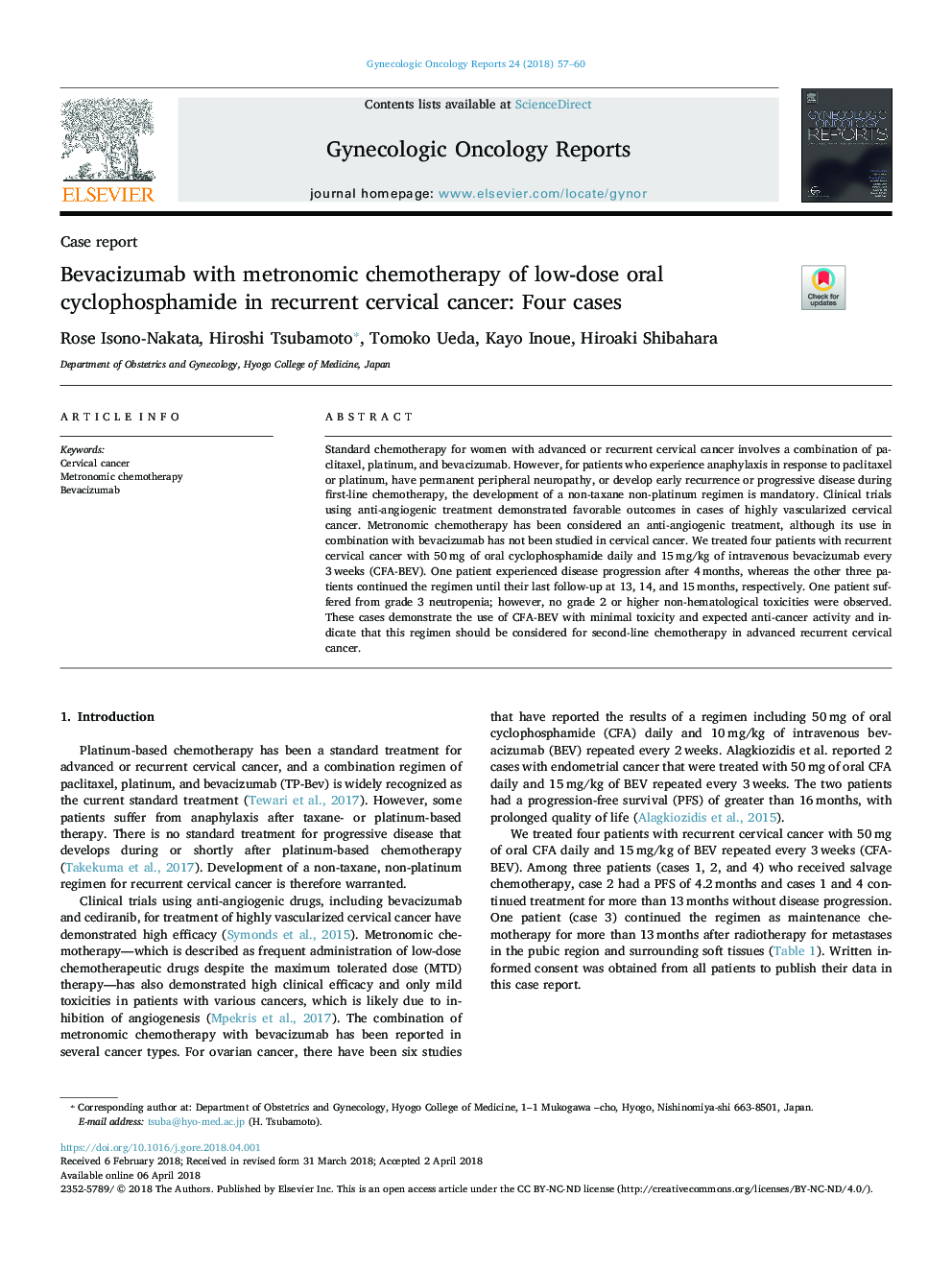| Article ID | Journal | Published Year | Pages | File Type |
|---|---|---|---|---|
| 8781008 | Gynecologic Oncology Reports | 2018 | 4 Pages |
Abstract
Standard chemotherapy for women with advanced or recurrent cervical cancer involves a combination of paclitaxel, platinum, and bevacizumab. However, for patients who experience anaphylaxis in response to paclitaxel or platinum, have permanent peripheral neuropathy, or develop early recurrence or progressive disease during first-line chemotherapy, the development of a non-taxane non-platinum regimen is mandatory. Clinical trials using anti-angiogenic treatment demonstrated favorable outcomes in cases of highly vascularized cervical cancer. Metronomic chemotherapy has been considered an anti-angiogenic treatment, although its use in combination with bevacizumab has not been studied in cervical cancer. We treated four patients with recurrent cervical cancer with 50â¯mg of oral cyclophosphamide daily and 15â¯mg/kg of intravenous bevacizumab every 3â¯weeks (CFA-BEV). One patient experienced disease progression after 4â¯months, whereas the other three patients continued the regimen until their last follow-up at 13, 14, and 15â¯months, respectively. One patient suffered from grade 3 neutropenia; however, no grade 2 or higher non-hematological toxicities were observed. These cases demonstrate the use of CFA-BEV with minimal toxicity and expected anti-cancer activity and indicate that this regimen should be considered for second-line chemotherapy in advanced recurrent cervical cancer.
Related Topics
Health Sciences
Medicine and Dentistry
Obstetrics, Gynecology and Women's Health
Authors
Rose Isono-Nakata, Hiroshi Tsubamoto, Tomoko Ueda, Kayo Inoue, Hiroaki Shibahara,
